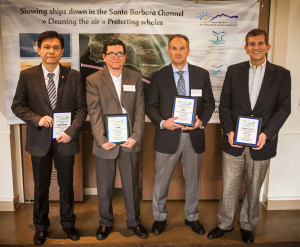“K” Line (India) Shipping Private Ltd (KLISP), affiliated company of Kawasaki Kisen Kaisha Ltd., joined Indian National Shipowner’s Association(INSA) at the end of January 2017.
KLISP was established in 2014 and actively participates in Indian Coastal Trade as well as International Trade business as an Indian Shipping company. In the same year, KLISP successfully entered into a long-term CVC contract with an Indian Charterer. From December 2016, KLISP acquired ownership of an Indian flag vessel, “GANGA K” (58,000DWT Bulk Carrier) for this contract, and by acquisition of this Indian flag vessel, KLISP was officially entitled to join INSA.
By becoming an INSA member, we anticipate this will enable us to become more actively engaged in the Indian Shipping industry as well as become even more deeply rooted in activities of the local market.
The long-term goal of the “K” Line Group is to consistently render the best and most reliable service possible that will also contribute to the quality of life of the people in India, and at the same time allow us to more actively participate in the local and continuously growing infrastructure and transportation system in India.







